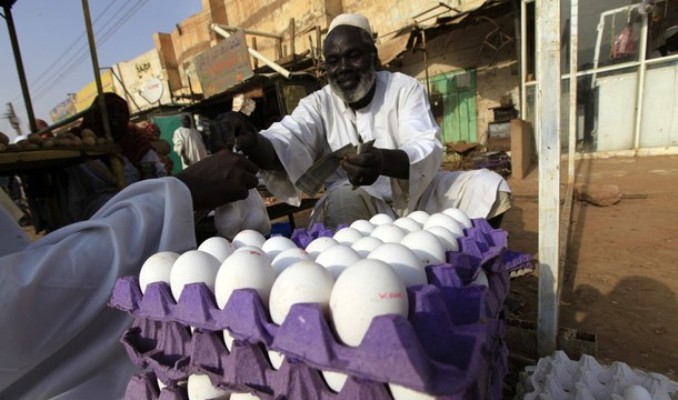Sudan’s inflation rises to 32,86 percent in January

March 1, 2017 (KHARTOUM) – Sudan’s Central Bureau of Statistics (CBoS) on Tuesday reported that inflation jumped to 32,86% in January compared to 30,47% in December due to the continued rise in food and energy price.
Last November, the government lifted fuel, electricity and drug subsidy in a bid to stop the surge in inflation and control the fall of Sudanese pound in the black market.
Also, Central Bank of Sudan introduced an incentive policy, increasing the exchange rate in commercial banks by 131%. As a result, the U.S. dollar exchange rate went up in banks to 15.8 SDG from the official rate of 6.5 SDG.
Following the CBoS decision, the dollar price went up and settled at 19,4 pounds on the black market.
However, after the U.S. decision to ease economic and trade sanctions imposed on the east African nation since 1997, the dollar price fell slightly in the black market and settled at 17,75 SDG.
In a move to reduce the demand for the U.S. dollar and protect domestic industry, the government banned the import of frozen meat and fish and raised tariffs on a number of imports. However, these restrictions pushed inflation further high given the country is heavily dependent on imported goods.
In December, the Sudanese parliament approved the 2017 budget expecting the deficit would reach 2,1% of the Gross Domestic Product (GDP) compared to 1,6% in 2016.
According to the budget, the growth rate would decline from 6,4% in 2016 to 5,3% and the targeted average inflation rate is 17%.
Sudan’s economy was hit hard since the southern part of the country declared independence in July 2011, taking with it about 75% of the country’s oil output.
Ordinary citizens continue to complain from cost of living increases that impaired their access to basic commodities.
(ST)
